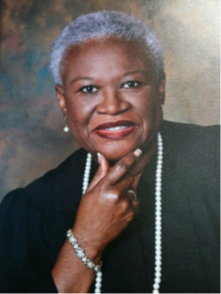
The Honorable Sheral C. Kellar, President
Oyez! Oyez! Oyez! All persons having business before the 2024 College of the National Association of Workers’ Compensation Judiciary draw near and give their attention for the College is sitting in Orlando, FL on August 19, 20 and 21, 2024.
The 2024 College was planned with new and veteran workers’ compensation judges in mind. On Day 1, the college offers courses including legal writing, evidence and comparative law. That is all before lunch. After lunch, we have presentations entitled, From Advocate to Adjudicator, Judging in the Moment and Practical Considerations for Video Hearings.
You know that old adage, “you’re never too old to learn.” This certainly applies to legal writing. There exists many new and diverse ways to make our judgments well reasoned and self-briefing. We are open to learning those ways including how AI tools like ChatGPT can assist with composing judgments. Meeting and responding to evidentiary objections is always a challenge. In the evidence session, we discuss the possibility of drafting a set of model rules designed specifically for workers’ compensation courts. We offer thoughts on what these rules might look like as well as next steps for such a project. The Comparative Law panel is always enlightening. It highlights how each state handles similar issues differently, yet we are never very far apart.
The post lunch offerings are primarily designed for new adjudicators. But, remember,
“You’re never too old to learn.” Join this panel for a lively and interactive discussion of the challenges new judges face and learn to successfully transition from advocate to adjudicator. “Newbies” will view scripted videos of mock hearings with various vignettes commonly scene in worker’s compensation disputes. A veteran panel of workers’ compensation judges will then lead a discussion with the “newbies” to discuss ways to address the issues presented. And, finally the first day of the college ends with practical advice for handling virtual hearings in a post-COVID environment.
The 2nd day of the college begins with a much anticipated three-judge panel presentation on “Self-Represented Litigants: Access to Justice. The three-judge panel with members from Louisiana, Virginia and California will discuss access to justice issues affecting self-represented litigants. Next, Judge Wes Marshall of Virginia will dissect interesting and unusual workers’ compensation cases from around the country. This is always a hit at the college. He talks about bizarre, hilarious and pivotal workers’ compensation cases. Afterwards, another three-judge panel follows with judges from Virginia, Florida and Rhode Island. This is our Ethics course. Here we discuss origins of judicial governance in different jurisdictions and their application to different hypothetical situations. Come one, come all and get your Ethics CLE. The last two presentations on Tuesday, August 20, 2024 are “Employee Leasing Agreements: General and Special Employers-Peeling the Onion” and “Limited Scope Representation”, respectively.
With the advent of violence in the courtroom, we begin Day 3 with a discussion of courtroom management and security. Did you know that not all workers’ compensation courts have bailiffs? How do we protect ourselves and the public we serve? Did you know that not all workers’ compensation courts provide for interpreters at hearings and trials? What are we to do for those limited English speaking litigants? Is it an access to justice issue to provide interpreters? Should the state pay for the interpreter or is it the litigant’s responsibility. We will answer all your questions. And, last but not the least of all, how do we take care of ourselves in the fast-paced, stressful environment of adjudicating workers ’ compensation disputes. On an airplane, the flight attendant instructs you to put your mask on first, and then place the mask on others. In other words, you cannot take care of others until you take care of yourself, first. How do we do that?
By the very nature of a judge’s work, it is often difficult for others to detect that a mental health problem is brewing. Judges work in isolation and mental health problems are shielded from view by peers and the practitioners that appear before them. Judges may perceive that admitting or addressing a problem may adversely affect their political and professional reputation. Delay, defer and denial tactics are ineffective against progressive diseases such as alcoholism, addiction, or depression. How do we help each other and ourselves? “Mindfulness” will give us tools to use to prevent irreparable damage to a career on the bench.
If you have not attended the College of the National Association of Workers’ Compensation Judges, I personally invite you to attend. It is part of the Workers’ Compensation Institute Annual Conference held in Orlando, FL every August. There you will find more than 8,000 professionals walking and talking nothing but workers’ compensation. If you have attended the college before, I’ll meet you there. There is nothing like it. See you in Orlando!
Sheral C. Kellar, President
National Association of Workers’ Compensation Judiciary
Louisiana Workers’ Compensation Judge – Chief
Louisiana Workforce Commission